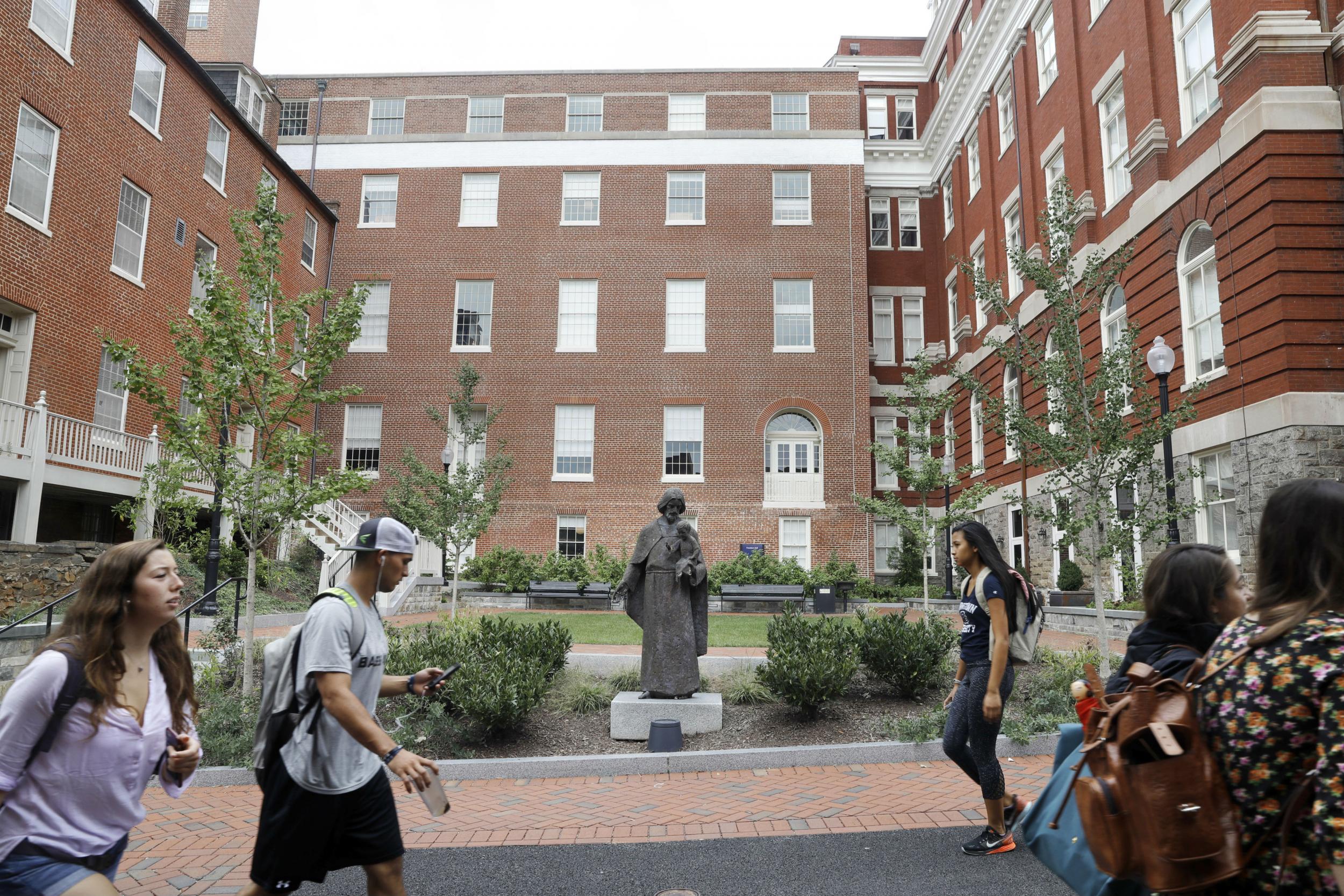How a growing number of US colleges are paying 'reparations' to descendants of slavery victims
‘We did not want to shy away from the uncomfortable part of our history,’ says one president

A number of US colleges have pledged funding to help descendants of slaves who were sold or forced to work to benefit the institutions.
Georgetown University in Washington DC and two theological seminaries’ promise of reparations open a new territory for colleges, which until now have responded to their links to slavery with monuments, building name changes and public apologies.
Students at Georgetown voted this year in favour of increasing their termly fees by $27.20, a figure symbolising the number of slaves the college sold in 1838 to pay off its debts, with the funds going towards projects in underprivileged communities home to the slaves' descendents.
John DeGioia, the university's president, responded instead with plans to raise $400,000 from donors, rather than from students, to support projects like health clinics and schools in those same communities.
Virginia Theological Seminary announced in September a $1.7m endowment fund in recognition of slaves who worked there.
It said annual allocations would go towards supporting African-American clergy in the Episcopal church and programmes that promote justice and inclusion.
The Princeton Theological Seminary in New Jersey followed with a $27.6m in scholarships and other initiatives after a historical audit revealed that some founders used slave labour.
"We did not want to shy away from the uncomfortable part of our history and the difficult conversations that revealing the truth would produce," M Craig Barnes, the seminary's president, said in October.
At some universities, discussions of reparations have been raised by individual professors, like at the University of Alabama, or by graduate students and community members, like at the University of Chicago.
At least 56 universities have joined a University of Virginia-led consortium, Universities Studying Slavery, to explore their ties to slavery and share research and strategies.
In recent years, some schools, like Yale University, have removed the names of slavery supporters from buildings.
New monuments have gone up elsewhere, including Brown University's Slavery Memorial sculpture — a partially buried ball and chain — and the Memorial to Enslaved Labourers under construction at the University of Virginia.
"It's a very diffused kind of set of things happening around the nation," said Guy Emerson Mount, an associate professor of African American history at Auburn University.
He said it is "really important to pay attention to what each of these are doing" because they could offer learning opportunities and inform national discussions on reparations.
In an October letter to Harvard University's president, Antigua and Barbuda's prime minister noted the developments at Georgetown and the seminaries and asked the Ivy League school to consider how it could make amends for the oppression of Antiguan slaves by a plantation owner whose gift endowed a law professorship in 1815.
Harvard's president wrote back that the school is determined to further explore its historical ties to slavery.
In 2016, the university removed a slave owner's family crest from the law school seal and dedicated a plaque to four slaves who lived and worked on campus.
The advantages that institutions received from the slavery economy are receiving new attention as Democratic presidential candidates talk about tax credits and other subsidies that nudge the idea of reparations towards the mainstream.
The country has been discussing reparations in one way or another since slavery officially ended in 1865.
William Darity, a Duke University public policy professor and an expert on reparations, said the voices of college students have helped bring attention to reparations but said they do not "constitute comprehensive reparations".
He believes it deserves a congressional response and said supporting a reparations program for all black descendants of American slaves "would be the more courageous act".
Few Americans support reparations, according to a recent Associated Press-NORC Center for Public Affairs Research poll.
It showed that only 29 per cent said the government should pay cash reparations to descendants of enslaved black people.
University of Buffalo associate professor Keith Griffler, who specialises in African and African American studies, said he sees the cusp of a movement on college campuses.
"The conversations, just acknowledging these kinds of things," he said, "I think would go a long way towards making students feel that at least their voices are being heard."
Associated Press
Join our commenting forum
Join thought-provoking conversations, follow other Independent readers and see their replies
Comments
Bookmark popover
Removed from bookmarks